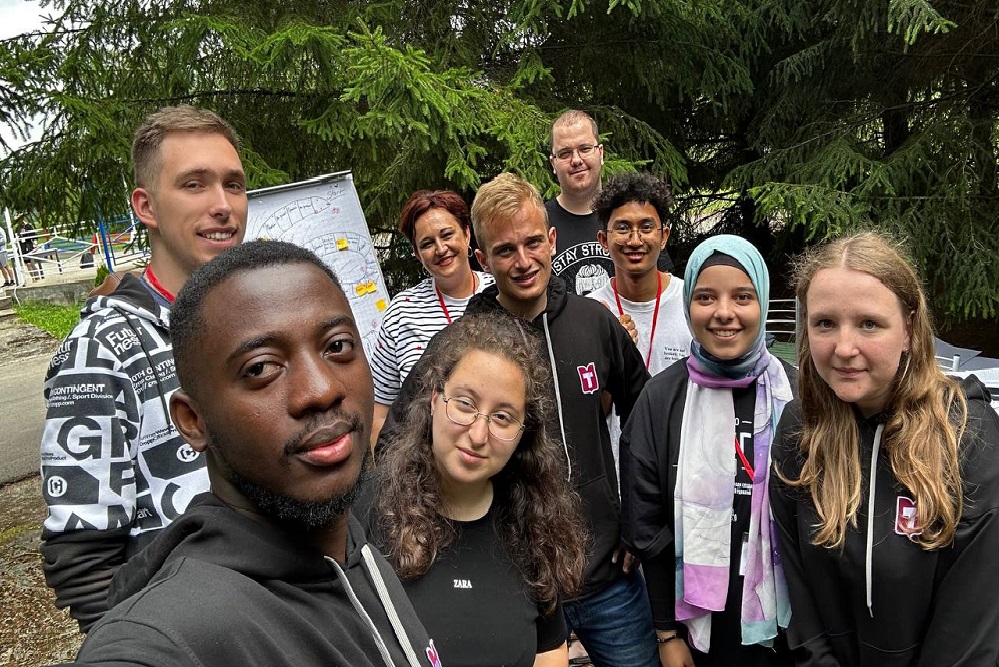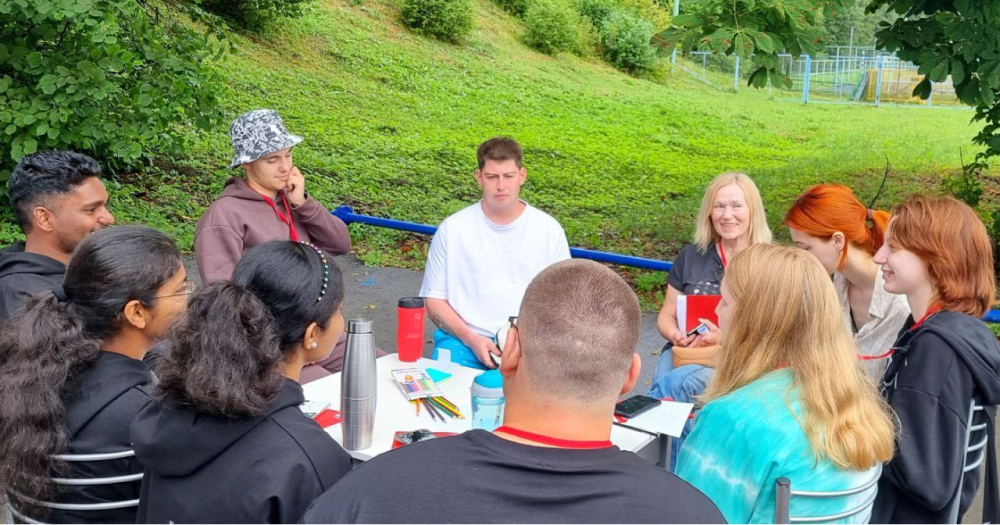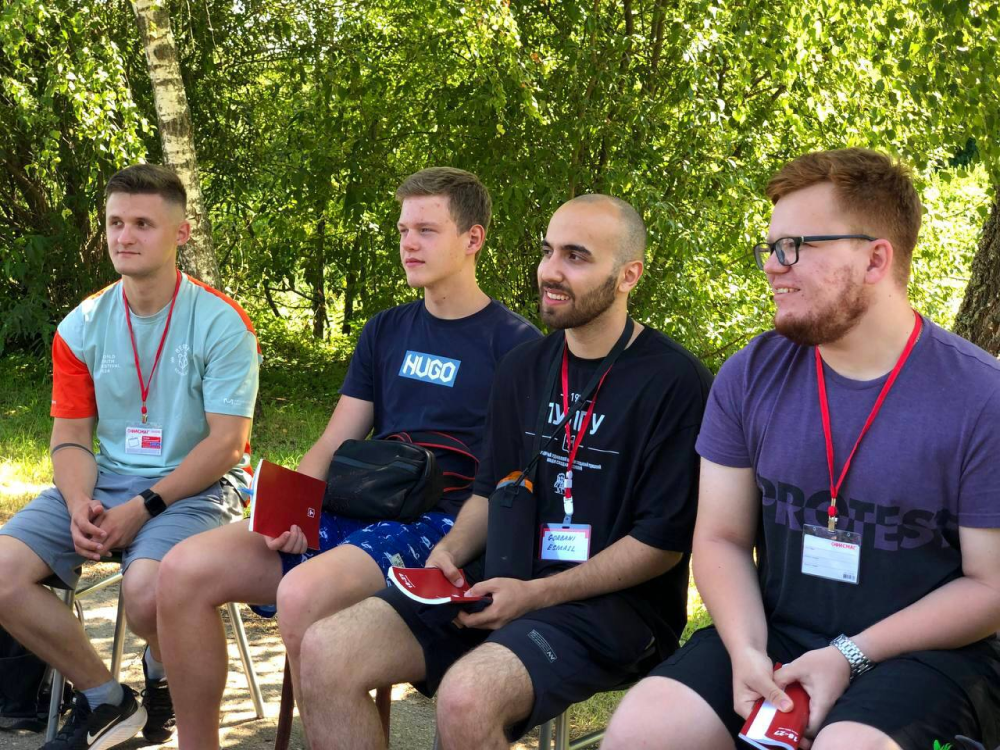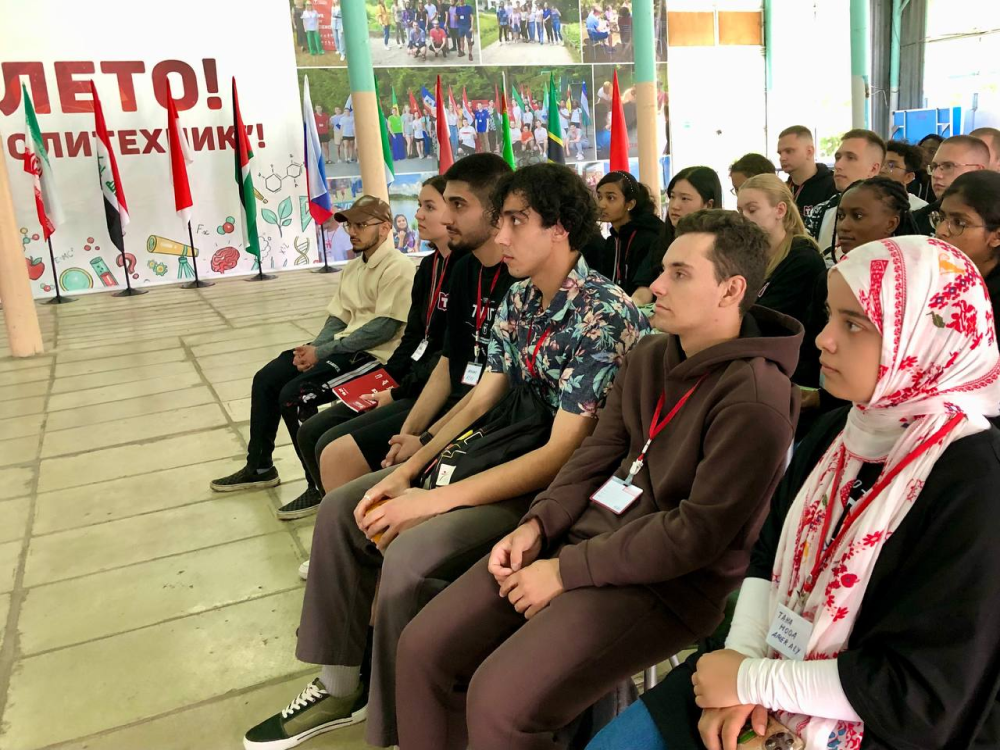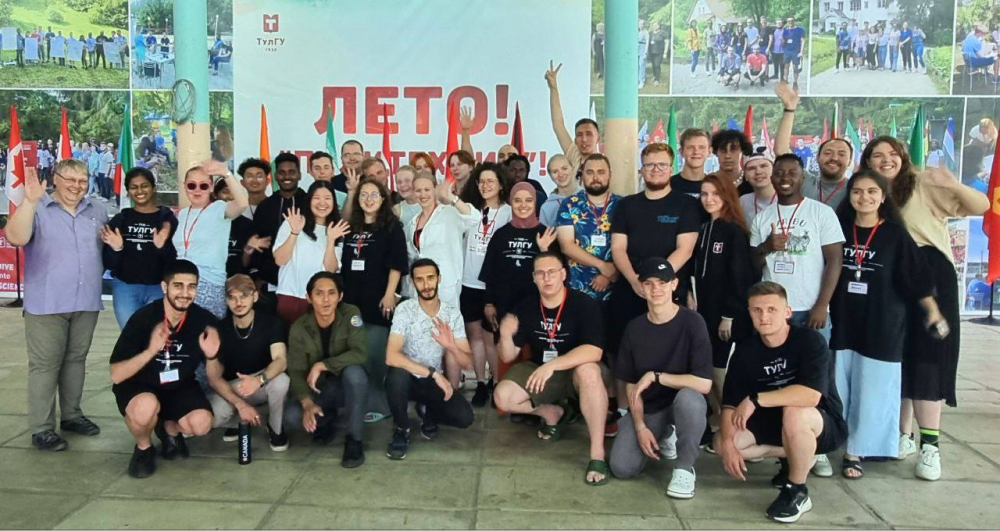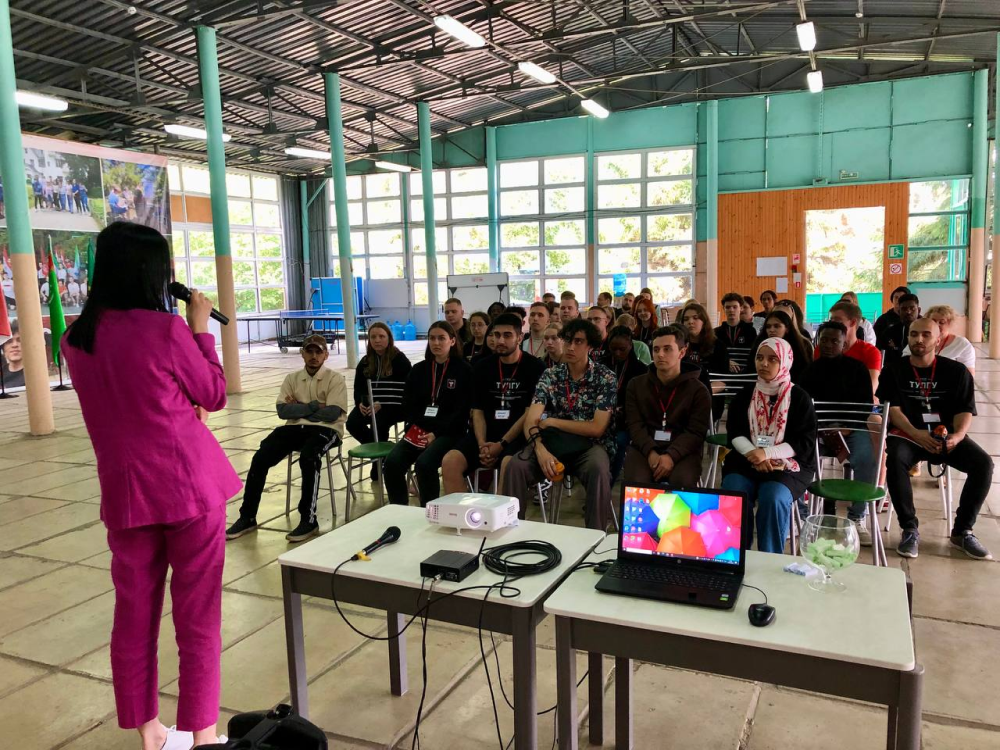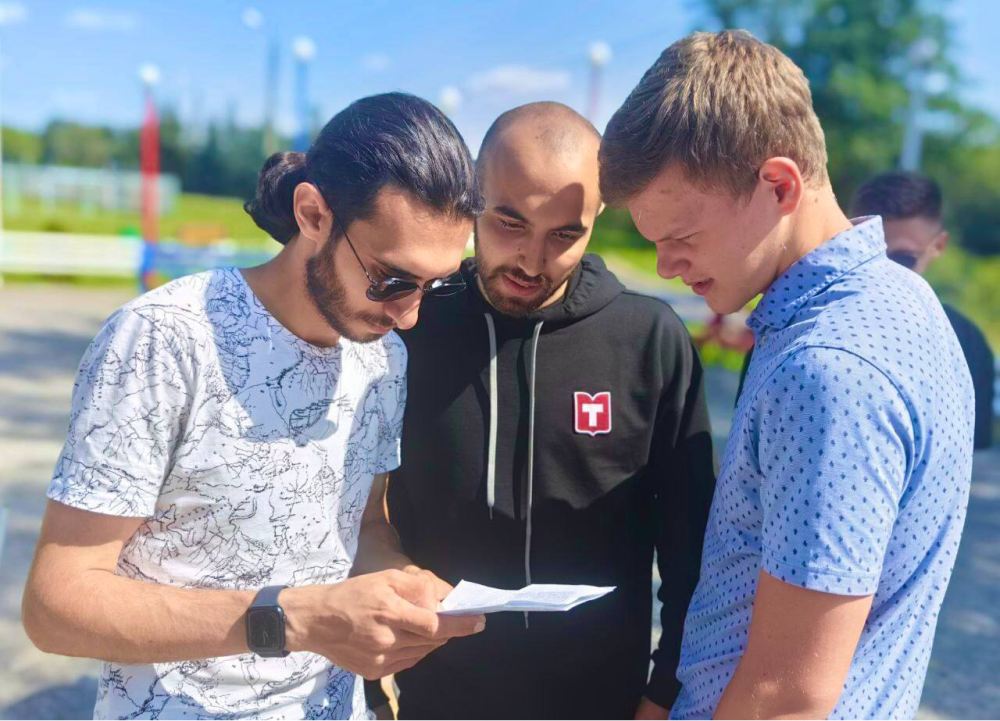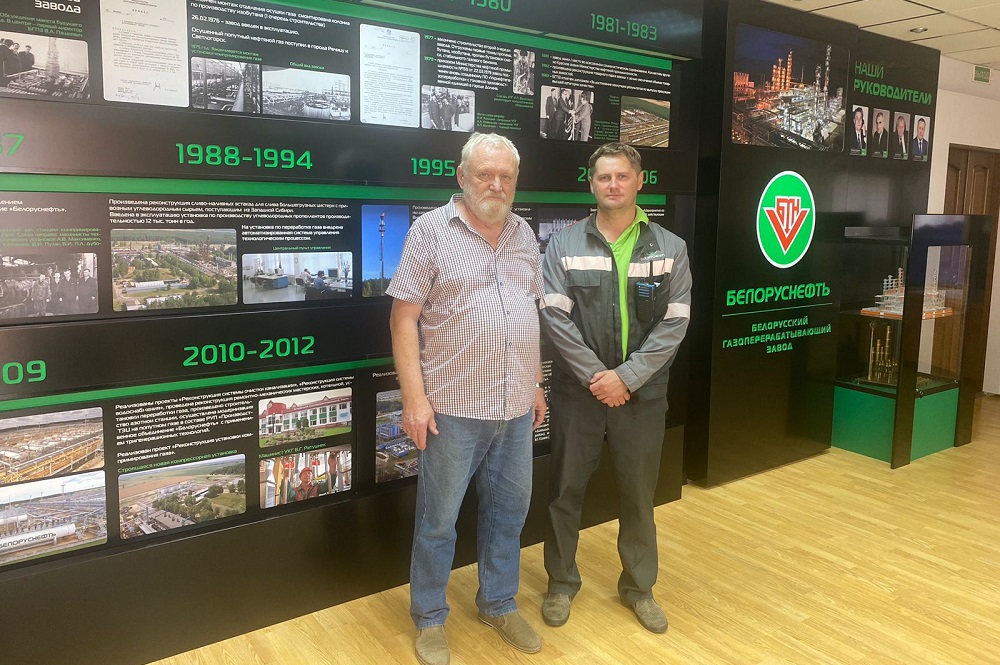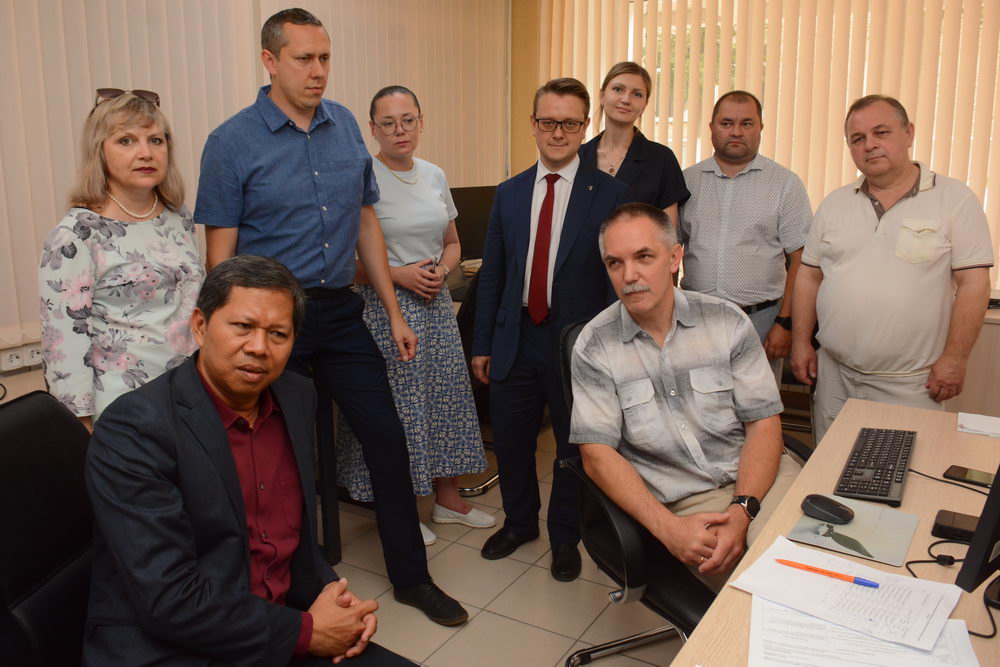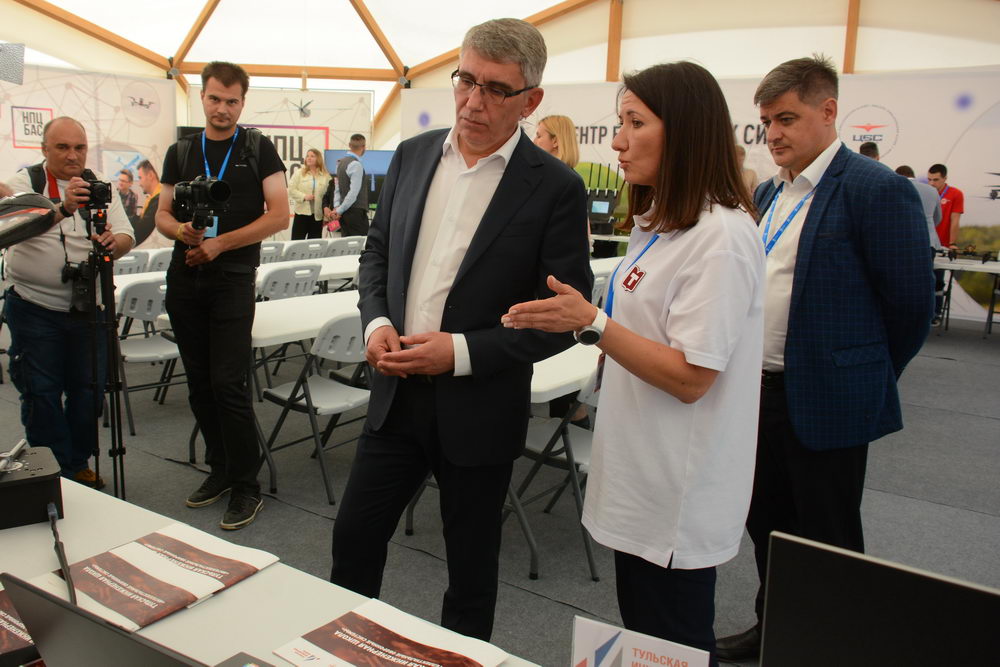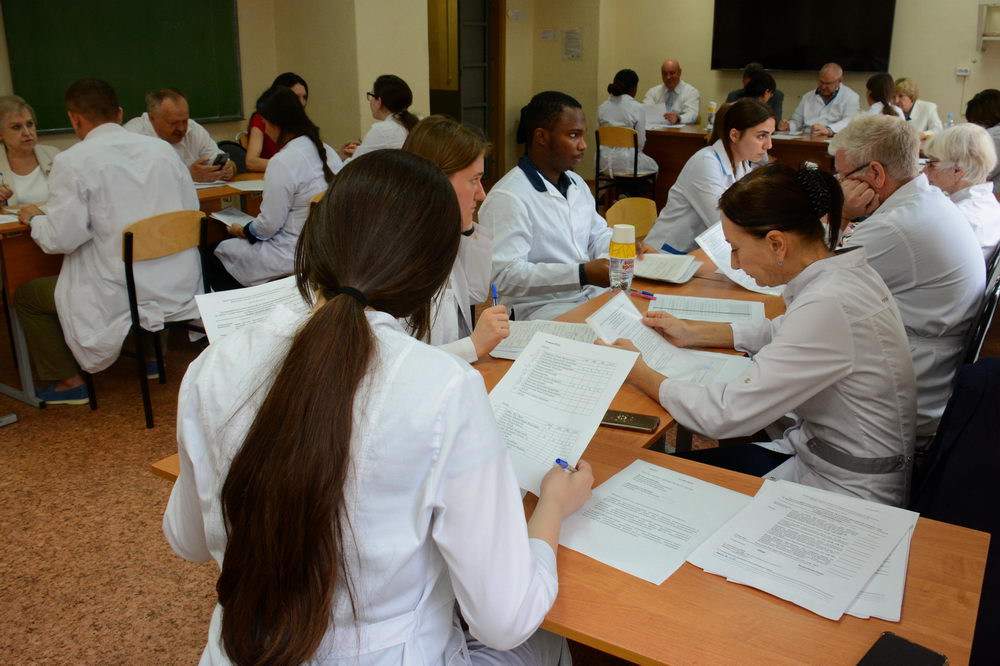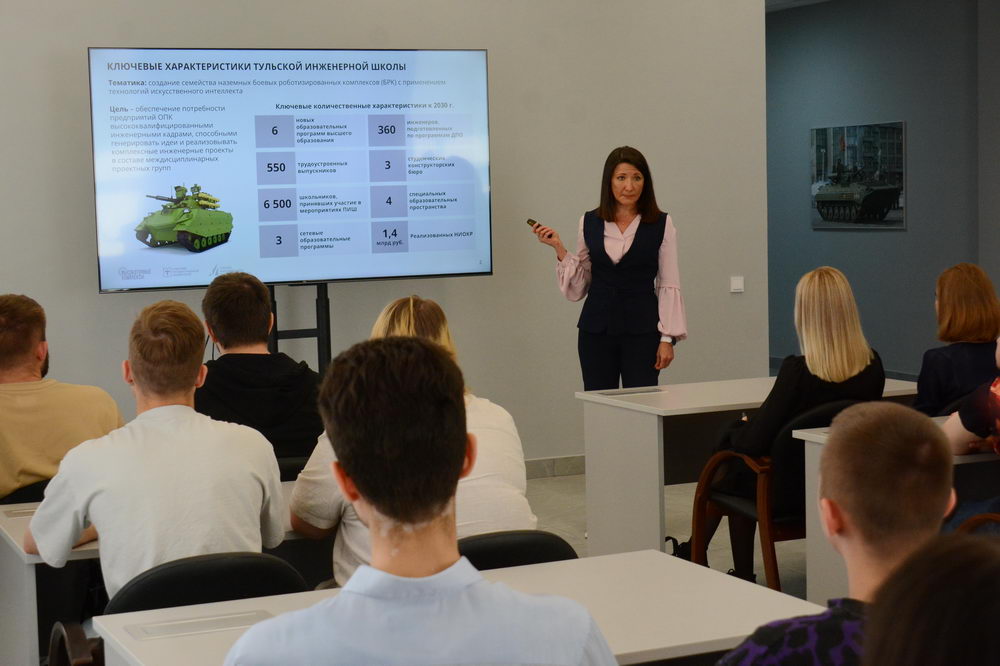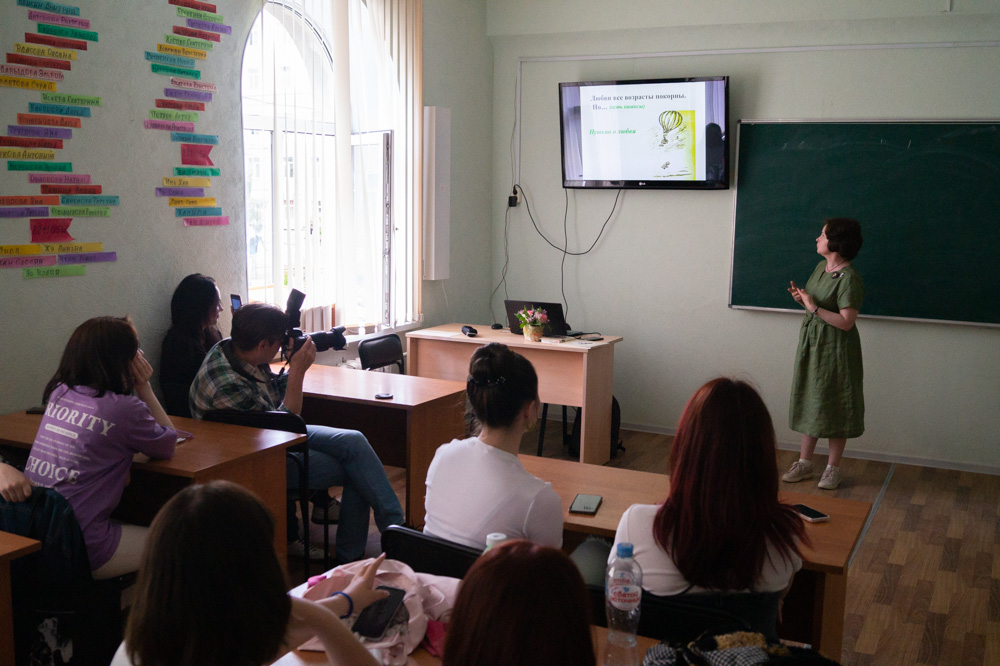- 25.07.2024
Scientific summer in English
The outdated thesis that one cannot enter the same river twice is successfully refuted by students and young researchers of Tula State University, participants of the III Summer School "Dive into Science!"
Can you think of anything better than a ten-day intensive training to develop English language and research activity skills, combined with a cultural and recreational programme. Perhaps only if it is all in a beautiful place - the Tula State University's educational and recreational complex "Polytechnik" on the Vashana River near the Oka River - and in the middle of summer, when the weather is the best in Central Russia.
That`s how it was.
For a week and a half, the participants of the "Dive into Science!" school not only studied English in an intensive communicative format and engaged in research activities, but also listened to a series of popular science lectures on a variety of topics. Every day was a treat! There were meetings of the discussion club “Pump Your English Up”, trips to interesting places, fun starts, new meetings and discoveries. The competitive advantage of the project "Dive into Science!" is the use of the methodology of intensive immersion in the language environment through the use of only one working language of communication and learning - English. The participants of the school are Russian and foreign students, for the latter English is their native language, which allows them to share their competences with those who study this language.
In 2024, the school was attended not only by young researchers of the university, but also by students, even freshmen, noted Olesya Yevgenyevna Labadze, TulSU Vice-Rector for International and Project Activities.
- The uniqueness of the "Dive into Science!" school is unique in creating an intercultural communication environment and immersing foreign students in postgraduate research," she said. - The practice of language skills combined with scientific design has shown its high efficiency, students like this format, so interest in the school's work grows every year.
On the opening day of the school, O.Ye. Labadze wished the participants productive work and spoke about the priority directions of scientific and technological development of the Russian Federation, to which, among others, the researches, conducted at TulSU, are dedicated.
Some days at the "Dive into Science!" school were thematic, such as the Day of Technological Entrepreneurship that was organised by representatives of the TulSU Startup Studio. They talked about the possibility of developing students' entrepreneurial skills during their studies.
In 2024, students of any program tracks and courses can participate in the business accelerator "TulGUTech". Their task is to form their team, develop and defend the project.
- And upon completion of the accelerator there is an opportunity to apply for a grant to the Innovation Support Fund and receive one million rubles for its implementation through the Student Startup programme," said Yelena Nikolayevna Prokofyeva, Associate Professor of the Department of Public Administration and Foreign Economic Activity. - The Startup Studio at TulSU will help them prepare the documents and formalise the project. The main thing is courage and desire to develop your idea!
Meetings with students were conducted by leading Tula State University faculty and staff.
Sergey Alexandrovich Dombrovsky, Advisor to the Rectorate, organised a discussion on the role of Aeroflot in the domestic passenger transport market, and Sergey Alexandrovich Pukhanov, Associate Professor of the Department of Linguistics and Translation, told the students about the intercultural peculiarities of non-verbal communication. He recalled the words of the writer Anthony Wiltden: "Any language is communication, but a very small part of communication is language".
- In addition to speech activity, communication involves visual, tactile, spatial and temporal ways of transmitting and perceiving information - gestures, facial expressions, postures, intonation", explained S.A. Pukhanov. - We communicate not only with words, but also with the help of acoustic features of voice, food, smells, artefacts and symbols - colour, clothes, jewellery.
The young researchers were introduced to the sciences that study the non-verbal aspects of communication, such as vocalics (paralinguistics), oculesics, haptics (tacessics), olfactics, gastica, chronemics, proxemics, kinesics. These "non-verbal languages" have, as numerous examples have shown, significant distinctive features in different cultures.
In 2024, the third "Dive into Science!" school brought together students from 16 countries, including Russia, Canada, Vietnam, Egypt, Turkmenistan, Syria, Jordan and others. After getting to know each other in the very first session, they were a team from then on.
This is how Valeria Patefonova and Varvara Aleksandrova, first-year journalism students at TulSU, remembered the school:
- We joined this circle of international communication very quickly, the participants shared their impressions. - Most of our schedule was taken up with English language learning and various practices. Every day we interacted more and more with the international students. We were able to learn how to talk about common topics while walking outdoors and constantly making revisions to our projects. And, of course, it was an introduction to the cultures of the different countries of the world that TulSU brought together.
Dmitriy Litvinov
Photographs from the archive of participants


